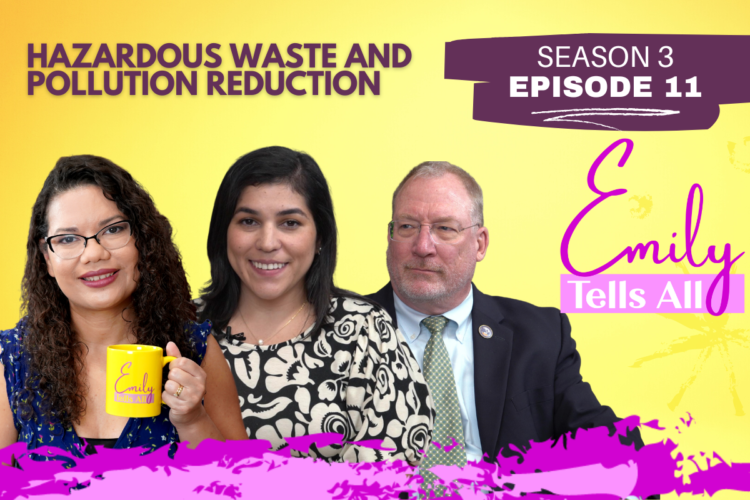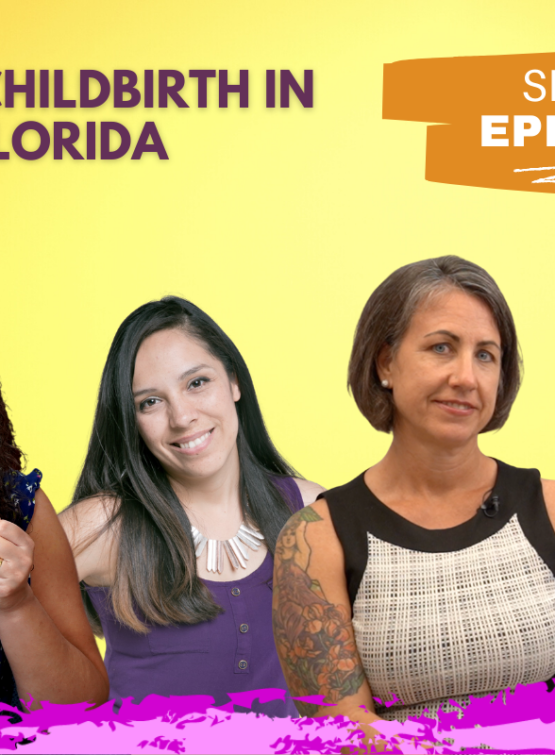AIR DATE MARCH 16, 2023
Title: Hazardous Waste & Pollution Reduction
Emily explores how local government processes hazardous waste and what we should all be doing to reduce pollution.
Guests
Orange County Government Solid Waste Division, Manager – David Gregory
Orange County Environmental Protection Division, Pollution Prevention & Control Program Supervisor – Helena Dacenay
Waste Management and Reduction Keeps Central Florida Healthy
According to data from the World Bank, the global average municipal solid waste generation per person is approximately 1.63 pounds per day. In a year, we create about 595 pounds of unwanted stuff that goes to landfills and other management facilities.
Managing that waste is a priority, and so is reducing the amount we each generate. Orange County has a pollution and prevention control program that works to accomplish that goal.
Helene Dacenay manages the program with her team of seven inspectors and others. “We focus primarily on compliance inspections for facilities that generate hazardous waste,” she told me. “We look at permitted solid waste facilities and then we do initial response to the complaints received from citizens.”
Every Community Needs Solid Waste Management Best Practices
“Hazardous waste is anything that comes from a business or industry that could be ignitable, meaning it catches fire, corrosive, eat through steel, or burn you,” David Gregory told me. He’s the solid waste division manager for the county.
We discussed how the best way to stop putting hazardous waste into the trash is to think about what you put into your body. “It’s stuff that is not food,” said Gregory. “It’s those strong chemicals that you would use around the house, or paint. It’ll say corrosive or flammable on the package. Those are the kinds of things that you would take to the HHW.”
HHW stands for “household hazardous waste.”
Limiting what goes into the solid waste system is a step home and business owners can take. Dacenay says we can do even more. “For businesses,” she said, “the main thing that they could do is regular maintenance of their machines. Whatever equipment they’re using, just staying on top of keeping it maintained and also doing their own self audits.”
Dacenay told me they provide blank checklists for self-inspections to see if things comply.
Then she recommends verifying the work that waste disposal agencies perform. “Unfortunately, there are some businesses or transporters that claim, ‘Hey, we’ll take your waste, we’ll get rid of it, you pay us, you don’t have to worry about it.’ And then we end up finding some drums abandoned in a rural area.”
Unwanted Items Are Accepted at Numerous Locations
HHW takes many items that home and business owners throw out in the regular trash or dump into drains. Stores like The Home Depot and Lowe’s are helpful for adequately disposing of pesticides and fertilizers. “They also do a lot of bulb collection,” Dacenay said.
Gregory says another way to reduce hazardous items is to use safer alternatives, such as natural cleaners in the home. “We use baking soda very often as a cleaner or vinegar as a cleaner. Both of those work very well,” he said.
It’s essential to remember that managing unwanted items is a daily task, but disposing of them doesn’t necessarily have to be that way. I would suggest just collecting, designating an area where you would collect these items for maybe about a month or a few months to a point where it’s like, okay, this box is full now,” said Dacenay.
You can find drop-off locations and a complete list of what qualifies as household hazardous waste at: https://www.orangecountyfl.net/watergarbagerecycling/householdhazardouswaste.aspx



